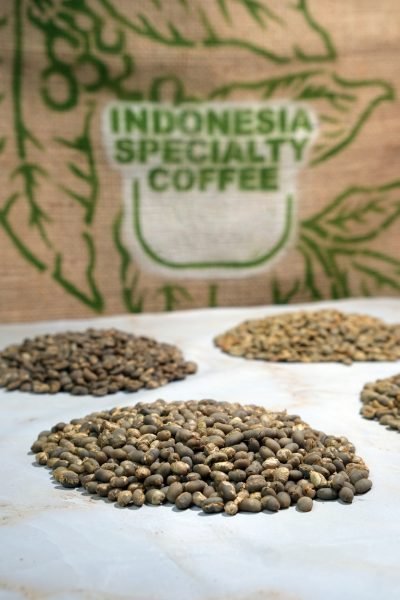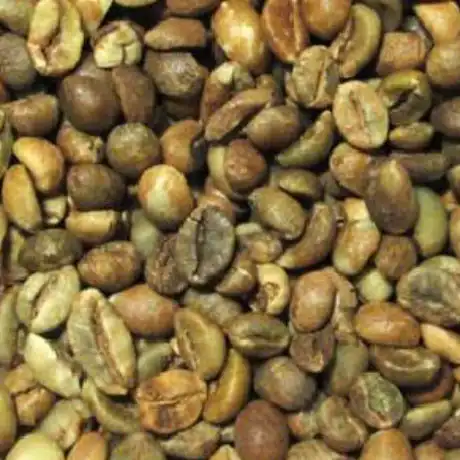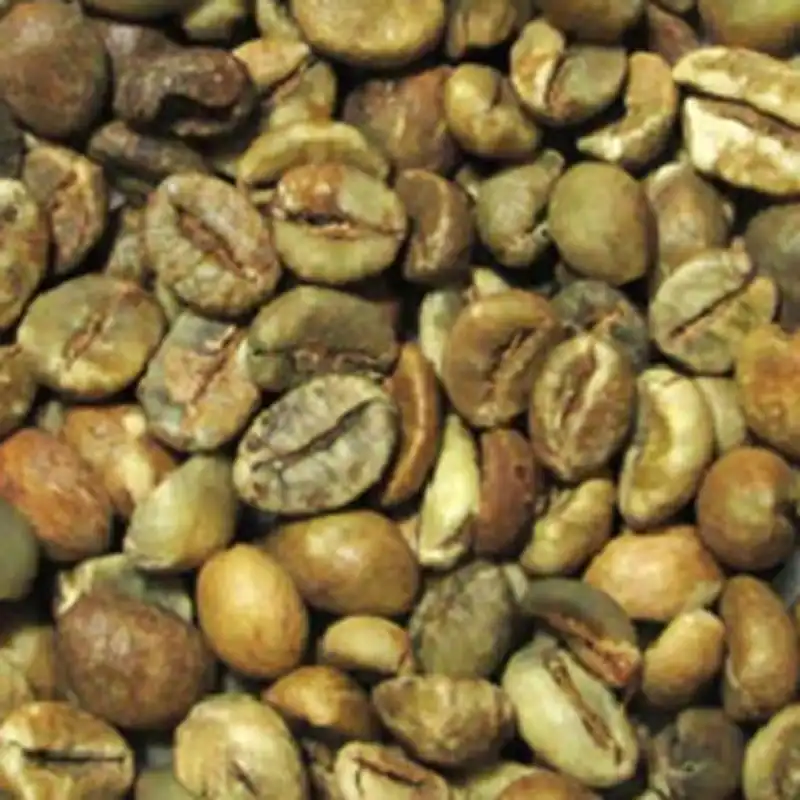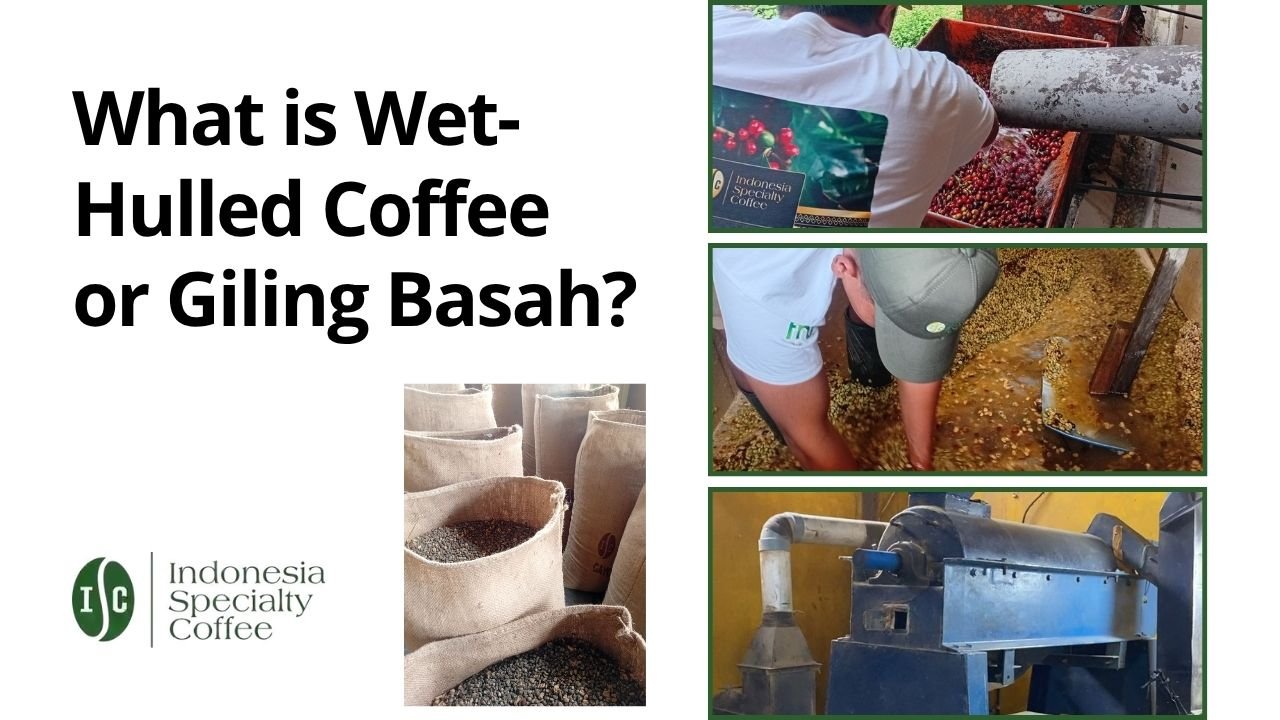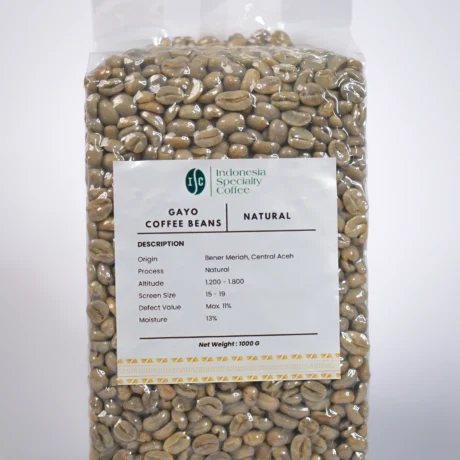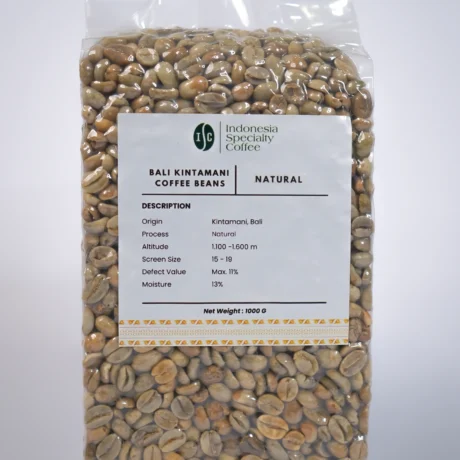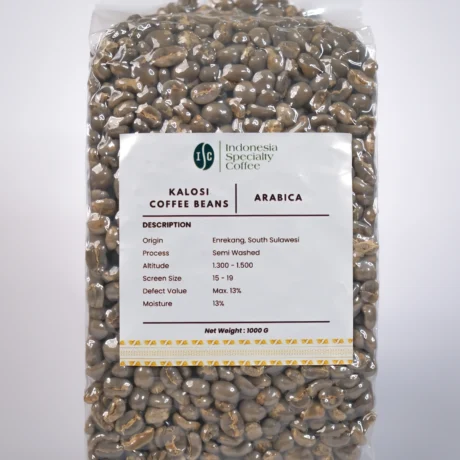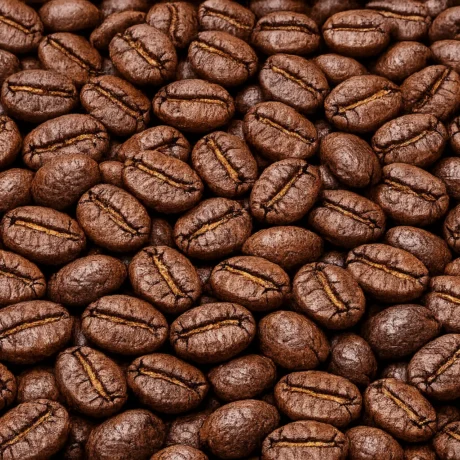What is Sumatra Coffee? – Called Sumatra coffee because it originates from the Indonesian island of Sumatra. So, basically all kinds of coffee beans that are grown on the island, whether it’s Arabica or Robusta, will be called Sumatra Coffee.
In the coffee industry, Sumatra coffee is highly valued for its unique taste characteristics and the traditional processing methods used by Sumatran farmers. Sumatra is one of Indonesia’s primary coffee-growing regions, playing a crucial role in the country’s economy because the Sumatra region covers 60% of Indonesian Coffee production.
1. The History of Sumatra Coffee – When It All Started
The journey of coffee in Sumatra began with Dutch colonists in the 18th century. During that time, they recognized the island’s fertile soil and ideal climate, the Dutch introduced coffee cultivation to the region.
Coffee cultivation in Sumatra dates back to the late 1600s when the Dutch East India Company began planting coffee trees in their Indonesian colonies. By the 19th century, Sumatra had become a significant coffee producer, exporting large quantities of beans to Europe and beyond.
The Dutch played a crucial role in establishing the coffee industry in Sumatra. They implemented structured farming practices and introduced the Arabica variety, which thrived in Sumatra’s unique environment. The legacy of their influence is still evident in the traditional methods used by Sumatran farmers today.
Until today, coffee holds deep cultural significance in Sumatra. It is more than just a crop; it is a vital part of the island’s heritage and daily life. Coffee farming supports countless families and communities, and traditional methods and rituals surrounding coffee cultivation and consumption have been passed down through generations.
2. The Varieties
Arabica and Robusta
Sumatra is home to both Arabica and Robusta coffee varieties, each offering distinct characteristics that appeal to different tastes. Arabica coffee from Sumatra is highly prized for its nuanced flavor profile, which includes notes of chocolate, earth, and spices.
These beans are typically grown at higher elevations, which contributes to their complex and refined taste. The Arabica variety is known for its smooth body and bright acidity, making it a favorite among specialty coffee enthusiasts. Some of the well-known products of Sumatra Arabica are Gayo, Mandheling, Lintong, and Luwak Coffee.
Many key players in the coffee industry, including Starbucks, Luckin Coffee, and Dunkin’, use Sumatra Arabica coffee as their main featured products
Robusta coffee from Sumatra, on the other hand, is known for its strong, bold flavors and higher caffeine content. These beans are often used in espresso blends to add a rich, full-bodied flavor and a distinctive bite. Robusta beans are hardier and can thrive at lower altitudes, which makes them more resilient to pests and diseases. Some of the well-known products of Sumatra robusta are Lampung and Sidikalang.
The Sumatra Coffee Variant
Sumatran coffee boasts a diverse range of coffee varieties, each presenting its own enchanting flavor profiles. These varieties are often named after the regions in Sumatra where they are grown, and each one offers a delightful and memorable coffee experience.
Arabica Gayo
Sumatra Gayo coffee, named after the Gayo Highlands in Sumatra, is a distinguished variety cherished for its delightful flavor. Grown at high altitudes, the beans boast a unique taste profile with earthy notes and hints of sweetness. The Gayo region’s volcanic soil and ideal climate contribute to the coffee’s exceptional quality, making it a sought-after choice among coffee enthusiasts.
Arabica Mandheling
Sumatra Mandheling coffee, hailing from the Mandheling region is takes place in the north of Sumatra island and is renowned for its full-bodied richness and low acidity. Its flavor profile offers a bold combination of earthiness, herbal undertones, and subtle fruitiness. As one of Sumatra’s most celebrated coffee varieties, Mandheling continues to enthrall coffee lovers with its captivating taste.
Robusta Sidikalang
Grown in the Sidikalang region of Sumatra, this coffee variety exhibits a distinct and complex flavor profile. It features an enticing balance of sweetness and herbal notes, accompanied by a lingering aftertaste. Sidikalang coffee‘s unique taste arises from the region’s fertile volcanic soil and the meticulous processing techniques employed by the local farmers.
Robusta Lampung
Sumatra Lampung coffee, cultivated in the Lampung region, presents a well-balanced cup with a medium body and mild acidity. The coffee exhibits a delightful combination of sweet and earthy flavors, making it a crowd-pleasing choice for coffee enthusiasts. Lampung’s coffee-growing traditions and nurturing climate contribute to the bean’s appealing characteristics.
Arabica Lintong
Sumatra Lintong coffee, grown in the Lintong region, offers a distinct and memorable coffee experience. A smooth body, low acidity, and a vibrant flavor profile with herbal and fruity notes characterize it. The region’s unique microclimate, along with the careful attention given by local farmers, contributes to Lintong coffee’s exceptional quality and distinct taste.
Organic Varieties
Organic coffee is grown without the use of synthetic pesticides or fertilizers, adhering to organic farming practices that are better for the environment and the health of the farmers. These coffees often carry certifications from recognized organic standards organizations, such as Fair Trade Organic is the Famous One. Consumers appreciate organic Sumatra coffee not only for its robust flavors but also for its commitment to sustainable and eco-friendly farming practices.
3. Why is Sumatra Coffee so Special?
Unique Flavor Profile: The most defining characteristics of Sumatran coffee are its earthy, herbal, and spicy notes. These flavors are often complemented by a hint of chocolate or tobacco, creating a complex and robust cup. This unique combination results from the island’s specific terroir and processing methods
Geographical Factors Influencing Cultivation
The unique geographical factors of Sumatra play a significant role in shaping the flavor profile of its coffee beans.
- Volcanic Soil: Sumatra’s rich volcanic soil is packed with essential minerals, which contribute to the coffee’s depth and complexity. This nutrient-rich environment helps the coffee plants to thrive, producing beans with distinct and desirable flavors.
- High Elevation: Coffee plants grown at higher elevations in Sumatra benefit from cooler temperatures and slower maturation. This results in beans with more concentrated flavors and balanced acidity, a hallmark of high-quality coffee.
- Microclimates: Sumatra’s varied microclimates, influenced by its mountainous terrain and proximity to the equator, create ideal conditions for coffee cultivation. These microclimates allow for a diverse range of flavors in the coffee, contributing to the island’s reputation for producing some of the world’s most unique and flavorful beans.
Processing Methods
The processing methods used in Sumatra are unique and also contribute significantly to the coffee’s special characteristics.
One of the most special and unique processes of Sumatra coffee is Wet hulling, or “Giling Basah,” a traditional Indonesian processing method that gives Sumatra coffee its distinctive taste. In this process, the coffee beans are hulled while still moist (30-35% moisture), which imparts a deep, earthy flavor and a syrupy body. This method is less common globally, adding to the uniqueness of Sumatra coffee.
Other than this method, there are 5 more common methods that are usually used to produce Sumatra green coffee beans. Which are: Natural, Honey, Full-wash, Wine.
Read also: 5 Types of Coffee Processing in Indonesia: Understanding the Differences
Quality and Grading
The quality and grading of Sumatran coffee beans are critical in determining their market value and flavor profile.
Factors Affecting Quality: Several factors influence the quality of Sumatra coffee, including the altitude at which it is grown, the care taken during harvesting, and the precision of the processing methods. The meticulous attention to these details ensures that the coffee maintains its high standards and exceptional taste.
Grading Systems: Graded based on size, shape, and defects. The grading system helps in categorizing the beans, ensuring that only the highest quality beans make it to the market. The most common grades are Grade 1, Grade 2, and Grade 3, with Grade 1 being the highest quality, free from defects and imperfections.
Indonesian Coffee Defect Value as per 300 grams of sample:
- Grade 1: 6-8
- Grade 2: 25
- Grade 3: 45
- Grade 4: 80
Read the comprehensive Indonesia Sumatra Coffee Beans grading guide: Indonesia Green Coffee Beans Grading
4. Why is Sumatra Coffee so Expensive?
Labor-Intensive Production Methods
The production of Sumatra coffee is highly labor-intensive. From hand-picking the coffee cherries to the meticulous wet hulling process, every step requires significant manual effort. The careful handling of beans during harvesting and processing ensures the highest quality, but it also increases production costs, contributing to the higher price of Sumatra coffee.
Limited Availability of Specialty Varieties
Sumatra coffee is prized for its specialty varieties, such as Mandheling, Lintong, and Gayo. These varieties are often produced in limited quantities, making them more exclusive and harder to find. The limited availability, combined with high demand, drives up the price of these specialty coffees. Additionally, the careful selection and grading of these beans ensure that only the best quality beans reach the market.
High Demand in Specialty Coffee Market
There is a high demand for Sumatran coffee in the specialty coffee market. Coffee enthusiasts and connoisseurs seek out Sumatra coffee for its unique flavors and rich body. This demand for premium quality coffee, coupled with the limited supply, results in higher prices. The recognition of Sumatra coffee by specialty coffee shops and roasters around the world further increases its value and market price.
5. The Health Benefits of Sumatra Coffee for Your Body
Antioxidants: Reducing the risk of chronic disease
Sumatra coffee is a rich source of antioxidants, antioxidants in coffee play a vital role in protecting the body from oxidative stress and reducing the risk of chronic diseases. The antioxidants in Sumatra coffee, such as chlorogenic acid, help combat free radicals, contributing to overall health and well-being.
Moderate Caffeine Content: Give you energy boost
One of the appealing aspects of Sumatra coffee is its moderate caffeine content. While it provides enough caffeine to boost energy levels and enhance focus, it is generally lower in caffeine compared to some other coffee varieties. This makes Sumatran coffee an excellent choice for those who seek the benefits of caffeine without excessive stimulation.
Read also: How much caffeine is in a cup of coffee?
Organic Sumatra Coffee Benefits
Organic coffee offers additional health benefits due to its cultivation without synthetic pesticides or fertilizers. This ensures that the coffee is free from harmful chemicals and promotes environmental sustainability.
Pesticide-Free Cultivation: Organic farming practices eliminate the use of synthetic pesticides, resulting in coffee that is cleaner and healthier. This is particularly important for consumers who are conscious of their intake of chemical residues and their impact on health.
Environmental Impact: Organic Sumatran coffee farming practices also benefit the environment. By avoiding synthetic chemicals, these methods help maintain soil health, protect local water sources, and support biodiversity. This sustainable approach not only produces healthier coffee but also contributes to the preservation of Sumatra’s rich natural landscape.
6. Brewing and Enjoying Sumatra Coffee
Brewing Techniques
To fully appreciate the coffee’s rich and complex flavors, it’s essential to use proper brewing techniques.
Pour-over Method: The pour-over method is excellent for highlighting the nuanced flavors of the coffee. Using a slow, steady pour allows for better extraction, resulting in a clean and flavorful cup that showcases the coffee’s earthy and spicy notes.
French Press Method: The French press method is perfect for those who enjoy a bold and full-bodied coffee. This immersion technique emphasizes the coffee’s heavy body and robust flavors, making for a rich and satisfying brew.
Traditional Black Coffee
Sumatra coffee is often enjoyed black to appreciate its full range of flavors without any distractions. Drinking it black highlights its earthy, herbal, and slightly sweet characteristics, providing a pure coffee experience.
Specialty Coffee Drinks
You can also use the coffee to create various specialty drinks that enhance its unique flavors.
Latte: A Sumatra coffee latte combines the coffee’s bold flavors with creamy milk, creating a smooth and rich beverage. The earthy notes of Sumatra coffee complement the sweetness of the milk, making for a delightful drink.
Mocha: A Sumatra coffee mocha blends the coffee’s robust flavors with chocolate and milk. The coffee’s natural chocolatey undertones are enhanced, creating a decadent and indulgent treat.
Culinary Applications in Recipes
Sumatra coffee’s rich flavors can be used in various culinary applications, adding depth and complexity to dishes.
Desserts: Incorporate Sumatran coffee into desserts such as tiramisu, coffee-flavored ice cream, or chocolate cake to add an earthy and rich flavor that enhances the sweetness of these treats.
Marinades: Sumatran coffee can also be used in savory dishes, such as marinades for meats. The coffee’s robust and earthy flavors add a unique depth to marinades, making meats more flavorful and tender.
7. Where to Buy Sumatra Coffee
Sumatra Coffee is one of our expert products in the Indonesian coffee product lines. We maintain the processing from the Coffee tree to your cup so you can enjoy the best coffee from Sumatra. Email us at info@specialtycoffee.id or WhatsApp at +62 811 6380 606

